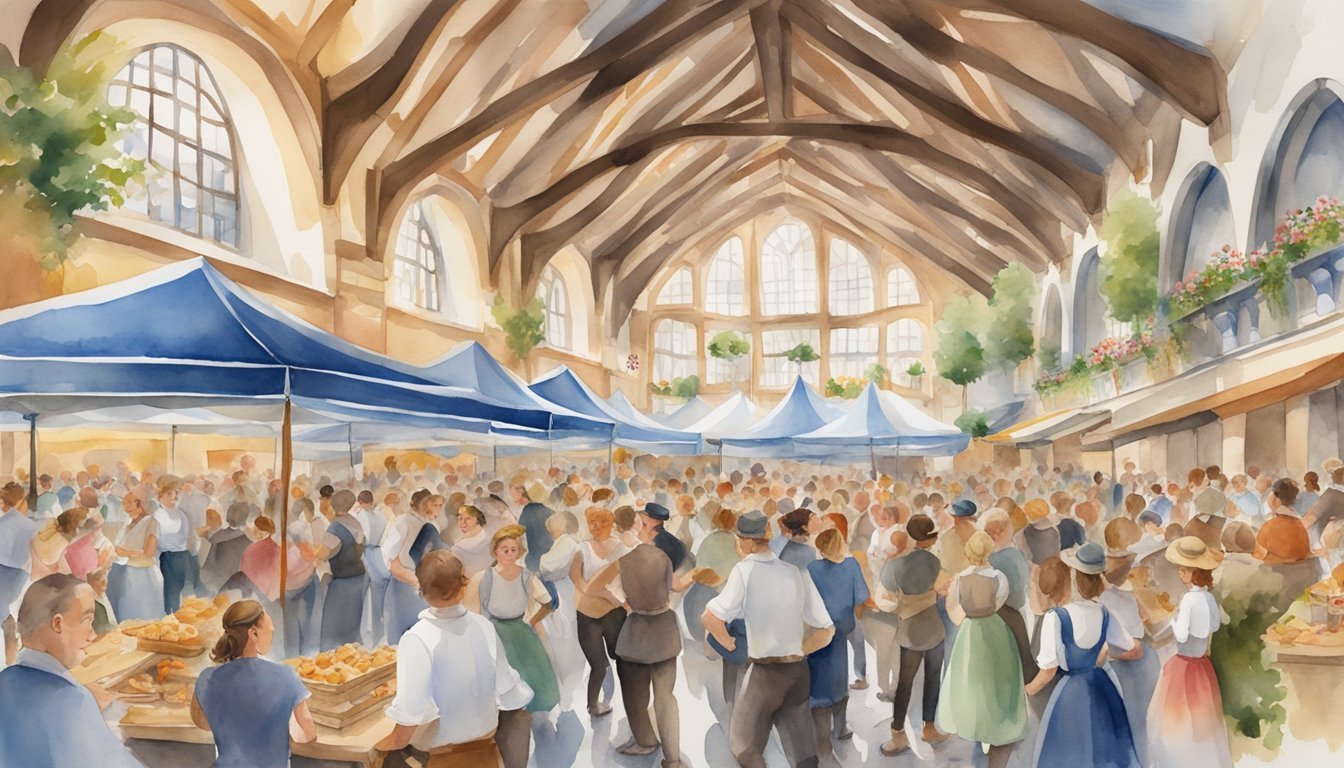Foundations of German Culture
German culture has been shaped by its deep historical roots and diverse influences. In exploring these foundations, one can understand the intricate tapestry that is today’s German society.
Historical Overview
Germany’s culture is a product of its complex history which includes pivotal events such as the Protestant Reformation and the impacts of both World Wars. The Roman Empire’s fall set the stage for the eventual rise of German states that would influence Europe’s trajectory. Philosophical thought and literature would also become Germany’s cornerstone, especially during the Enlightenment and Romantic periods. Architects would define the skylines of cities with constructions affirming Germany’s heritage.
Language and Dialects
The German language is a pillar of the nation’s culture with dialects that reflect the rich diversity across the regions. In fact, these dialects can be so distinct that they sometimes lead to miscommunication between natives from different parts of the nation. Germany’s linguistic contributions extend beyond communication, influencing philosophy and literature throughout Europe.
Religious Influence
Christianity, particularly the aftermath of the Protestant Reformation, has played a central role in shaping German culture, values, and community. The Reformation introduced an era of religious and political upheaval which prompted significant changes in church, state, and family life. Today, religious traditions continue to mark holidays and life transitions, maintaining the ties between the past and present-day German society.
Cultural Manifestations and Social Life

Germany boasts a rich tapestry of cultural manifestations and social customs that reflect its history and contemporary society. From the iconic musical compositions of Bach and Beethoven to traditional Bavarian festivals like Oktoberfest, German culture is a vibrant combination of arts, culinary delights, and social etiquette deeply ingrained in the everyday life of its people.
Music and Performing Arts
German contributions to music and the performing arts are unparalleled with composers like Johann Sebastian Bach and Ludwig van Beethoven shaping classical music. In modern times, cities like Berlin have become hubs for techno music, influencing electronic music scenes worldwide. Opera houses across the country frequently showcase the compelling works of Richard Wagner and Wolfgang Amadeus Mozart, with the Bayreuth Festival dedicated to the former’s operas.
Cuisine and Culinary Arts
German cuisine is celebrated for its hearty flavors, with staples such as sausages, bread, pork, and potatoes. The Bavarian pretzel, different varieties of Bratwurst, and the renowned Black Forest cake showcase Germany’s regional diversity. The culinary scene also embraces influences from neighbors like Austria and Switzerland, as well as from Turkish immigrants, enriching the array of food choices.
Festivities and Traditions
Festivals and traditions play a significant role in German culture, with Oktoberfest in Munich being one of the most famous celebrations, drawing beer enthusiasts from around the world. Christmas markets and Carnival are also central to German festivities, each with unique customs and regional practices. The country honors its traditions, which often combine food, drink, and communal joy.
Artistic and Architectural Movements
From Gothic to Renaissance, and from Baroque to Bauhaus, Germany’s artistic and architectural movements tell a story of evolving aesthetics and ideas. The Bauhaus movement, born out of Weimar, revolutionized modern design, and continues to influence modern architecture and art. Numerous museums and galleries across the country showcase the work of German artists, past and present.
Society and Etiquette
Society and etiquette in Germany are marked by values such as punctuality, respect, and logic, reflecting its population’s preference for order and reason. German social etiquette emphasizes direct communication and adherence to established rules, which are signifiers of respect. This translates into a society that is organized, with a high regard for thinkers like Immanuel Kant and his philosophy of reason and ethics.
In this exploration of German culture, the interweaving of traditional and modern elements is evident, showcasing a society that respects its past while continuously innovating in various fields from science to culinary arts.

